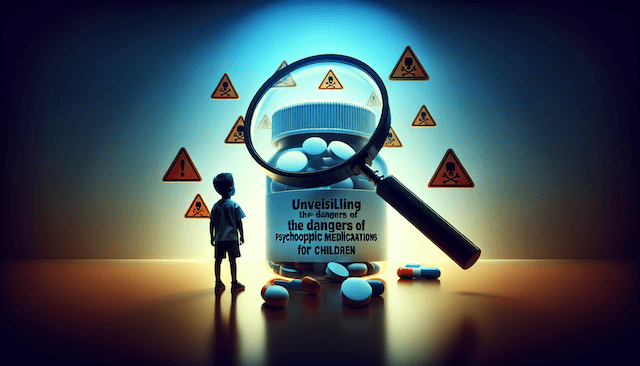An Australian Government key reform has consistently been to peruse a “National Evidence-Based Policy for Service Planning and Delivery” (Australian Government Response to Contributing Lives, Thriving Communities: Review of Mental Health Programmes and Services, 2015). In the past, general practitioners predominately prescribed psychotropic medications to treat mental health disorders, while pharmaceutical companies sponsor directly or indirectly the majority of journals, scientific meetings, and research into psychotropic medications’ efficacy (Migone, 2017). 60% of all paediatric prescriptions are prescribed ‘off-label‘ and not as part of the intended purpose of the drug (Faculty of Pain Medicine & Australian and New Zealand College of Anaesthetists, 2007).
Evidence-based commitment to the foundations of service planning and delivery is not only compromised by self-serving interests, but health professionals are also disregarding guidelines set out by regulators. Children and young people are at a greater risk of side-effects from psychotropic medications, including metabolic abnormalities, antipsychotic-induced hyperprolactinemia, and weight gain, and parents are rarely provided with full informed consent about the possible long-term effects these drugs can have on their children (Breeding & Baughman, 2001). If children are to receive potent medications, would it not be prudent for legislators to introduce regulations requiring greater oversight of the regime and invest in genuine independent research examining the long-term implications of psychotropic medications on the developing brain?

Between 2017 and 2018, 14% of Australian children under seventeen years of age were diagnosed with a mental health disorder, which included roughly five hundred thousand mental health-related drug prescriptions (Australian Institute of Health and Welfare, 2020). The DSM-5 has increased child and adolescent mental health-related disorders by 35 times since its first publication in 1952. The adage “they will grow out of it” or “they will grow into it” has now been replaced with speculative assessments, standardisations of acceptable behaviour and development, and a long list of disorders. Consequently, this has led to a pathologising of anything out of the norm, followed by a cocktail of non-evidence-based drugs, many of which are used as panaceas for numerous disorders and given to young people with little to no oversight.

The Australian Department Of Health dictates the scheduling of medicines and poisons into categories through a legislative document called the Commonwealth Poisons Standard, which is managed and updated by the Therapeutic Goods Administration. Some of the categories also fall within criminal law classification, and categories two, three and four represent pharmacy over-the-counter medicine, pharmacist only medicine and prescription medication. (Department Of Health, 2021) These schedule categories do not distinguish between psychotropic drugs and any or all other biological medications. Professional peak bodies guide doctors and psychiatrists to distribute psychotropic medications to children. Jafuneh (2018) argues that there can be little doubt that psychotropic medications do pose a significant risk and have potential long-term adverse effects on the developing brain. Jafuneh (2018) suggests that medicating children is considered a cost-effective, time-efficient practice promoted by pharmaceutical companies and doctors and supported by policymakers in a non-evidence-based approach to childhood development. Despite the enormous increase in service provisions and stigma reduction of mental health issues, mental illness rates have either increased or remained the same. It is widely reported that the lack of evidence-based treatment options being currently provided is not meeting basic minimal clinical standards, contributing to the problem (Migone, 2017).

Germany currently has the lowest rate of psychotropic medication prescriptions for children out of all OECD countries. Germany has rigorous legal policies and regulations regarding the direct marketing of psychotropic drugs to children, families, and doctors, including their reimbursement system, disorder classifications, and society’s cultural beliefs. (Zito, 2008) The Australian Government should implement new laws and regulations targeting psychotropic medications’ financial reimbursement incentives, invest in independent research on the long-term effects of these drugs, and require doctors to justify a diagnosis and prescription of psychotropic drugs, ‘off-label’ or otherwise, to independent bodies. Due to psychotropic medications’ experimental nature, they immediately require their specific category within the Commonwealth Poison Standard Act to highlight the lack of empirical evidence on the effectiveness and purpose of such medications. Parents urgently need to be made aware of the potential side-effects and long term unknown consequences of their children taking these types of drugs.

